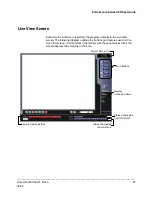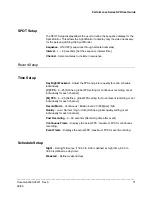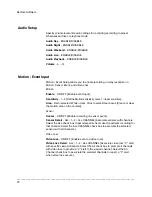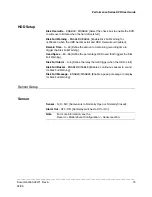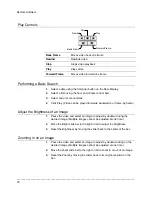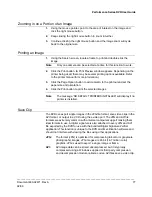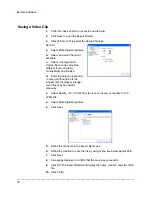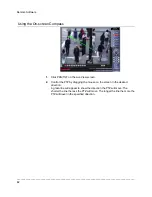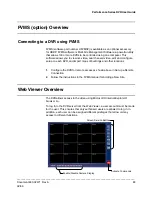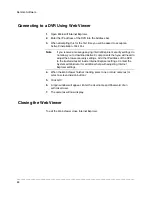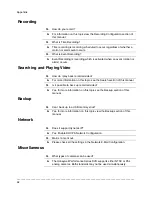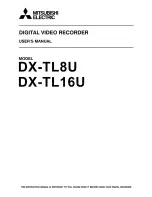
Performance Series DVR User Guide
______________________________________________________________________________________________
Document 800-02471 Rev A
77
02/09
Zooming in on a Portion of an Image
1.
Using the mouse pointer, point to the area of interest on the image and
click the right mouse button.
2.
Keep clicking the right mouse button to zoom in further.
3.
Continue clicking the right mouse button and the image zoom will cycle
back to the original size.
Printing an Image
1.
Using the Search screen, locate a frame to print and double-click the
image.
Note
Only one camera can be selected at a time for this function to work.
2.
Click the Print button. (A Print Preview window appears. Depending on the
printer being used, there may be several printing options available. Refer
to the printer manual for more information.)
3.
Click the Page Option button to add a memo to the printout and set the
paper size and orientation.
4.
Click the Print button to print the selected images.
Note
The message
“
NO DEFAULT PRINTERS INSTALLED
”
will display if no
printer is installed.
Save Clip
The DVR can export single images in the JPG file format, save video clips in the
AVI format, or output to a VCR using the s-video port. The JPG and AVI file
formats are extremely common with universal computer support making them
ideal formats to use. A digital signature is also attached to every JPG and AVI
file exported by the DVR for use with the bundled Digital Signature Verifier
application. This function is unique to the DVR and its verification software and
should not interfere with viewing the files using other applications.
JPG:
The format (JPG) is optimized for compressing full-color or grayscale
photographic images. JPG images are 24-bit (16.7 million color)
graphics. JPG is used to export a single image or frame.
AVI:
AVI image data can be stored uncompressed, but it is typically
compressed using a Windows-supplied or third party compression
and decompression module called a codec. AVI files save a video clip.





